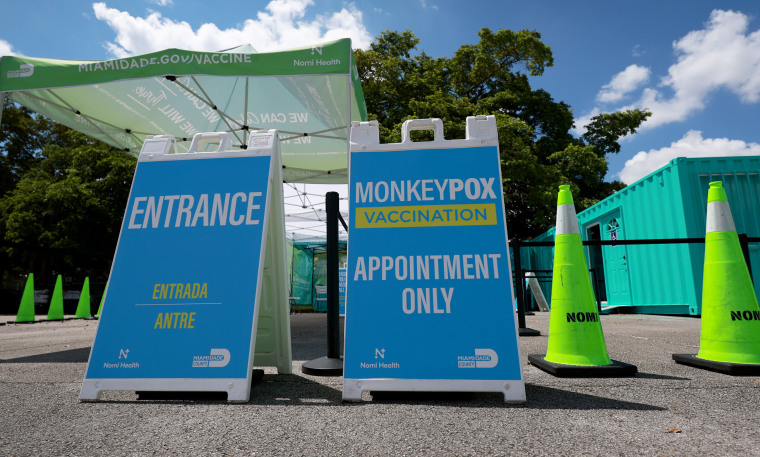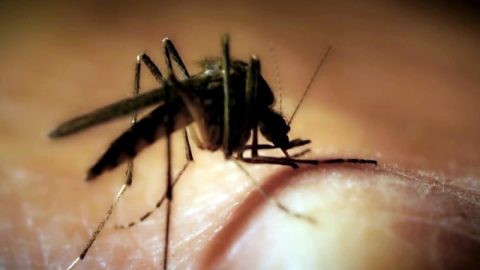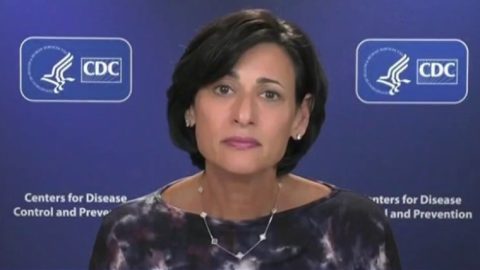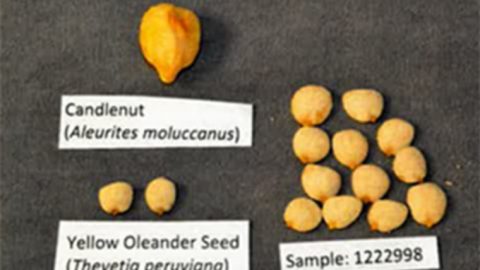As concerns mount about a type of mpox spreading across Africa that’s believed to cause more serious illness, infectious disease experts expressed cautious optimism that this branch of the virus would not spread as broadly in the U.S. or cause health impacts as severe.
The risk of this subtype of mpox to the U.S. could be mitigated by a number of factors, including immunity from vaccination and previous infection from the outbreak of a different variant that began in 2022; the lack of viral circulation in wild animals; and better health care access, living standards and public health.
On Wednesday, the World Health Organization reinstated the status of mpox (formerly monkeypox) as a public health emergency of international concern. This was in response to a large ongoing outbreak of clade I of mpox — a clade is an evolutionary branch — in the Democratic Republic of Congo, or DRC, that has spread to other African nations.
Sweden announced the first clade I case outside of Africa on Thursday.
“It was only a matter of time before we saw this extend beyond the African continent,” Dr. Boghuma Titanji, an infectious disease specialist at Emory University, said.
In a statement issued Friday, Dr. Pamela Rendi-Wagner, director of the European Centre for Disease Prevention and Control, said the agency had increased the risk level of clade I to the general European population from “very low” to “low.”
“Due to the close links between Europe and Africa,” Rendi-Wagner said, “we must be prepared for more imported clade I cases.”
The CDC confirmed on Friday that there have been no reported cases of clade I in the U.S. to date.
Clade I is generally considered more transmissible and more severe than clade II, which drove the global mpox outbreak that peaked in August 2022 and had a death rate of 0.2%. Immunocompromised people, in particular those with untreated, advanced HIV, have been at greatest risk of severe disease, hospitalization and death from clade II. The U.S. continues to see low-level clade II transmission.
Anne Rimoin, an epidemiologist at the University of California, Los Angeles, and a leading mpox expert, said context is key when considering how mpox might behave in Western nations compared with Africa.
“I think we have to be very, very cautious about saying that this is more dangerous,” Rimoin said of clade I. “The data on the severity, associated mortality — all of that is scant. There are a lot of questions about whether or not the perceived severity might have more to do with the population that it’s spreading in, their immune system, the route of transmission, the infectious dose.”
The National Institutes of Health on Thursday reported that the antiviral TPOXX did not reduce clade I symptom duration in a DRC clinical trial. But promisingly, just 1.7% of the participants died, compared with a typical clade I death rate in DRC of 3.6% or higher. NIH experts touted the better medical care provided to study participants.
Epidemiologist Dr. Jennifer McQuiston, the lead for the Centers for Disease Control and Prevention’s mpox clade I response, said the study offered hope that high-quality health care in the U.S. would help minimize deaths from the disease.
Dr. Dan Barouch, a Harvard Medical School virologist, said it was likely the U.S. would see clade I cases. “The absolute risk in the U.S. is currently low,” he said. “Although we need to remain vigilant.”

CDC officials first alerted doctors and other health care providers in December to be on the lookout for clade I. The agency updated that advisory on Aug. 7. When U.S. clinics order testing of potential mpox samples from patients with suspected cases, some testing centers directly screen for mpox clade type, while others need to send samples to the CDC to do so. All positive results must be reported to the CDC. Numerous sites throughout the nation also survey wastewater for signs of the infection in the local population.
“We are more worried about clade I than we are about clade II,” McQuiston said of the CDC’s sustained domestic vigilance.
The agency recently reported that receiving both doses of the Jynneos vaccine appears to reduce mpox risk. The CDC expects the vaccine to protect against both clades.
Throughout the now-low-level clade II outbreak, mpox has overwhelmingly spread through sex between men. The CDC continues to urge men with multiple male partners to receive both Jynneos doses. Only an estimated 1 in 4 of those considered at significant risk of mpox in the U.S. have been fully vaccinated.
The DRC outbreak has seen substantial sexual transmission of clade I among both gay men and female sex workers. Children, however, have accounted for two-thirds of the approximately 20,000 suspected cases and three-quarters of the 975 suspected deaths in the DRC since January 2023, according to the CDC.
It’s possible that recent documented mutations in the virus may have made it more transmissible. Rimoin said close physical contact — whether sexual or nonsexual household contact — likely remains largely necessary for transmission.
People in the DRC tend to live in much more cramped quarters than in the U.S., Rimoin said.
“We don’t hear reports of people getting it at the market,” McQuiston said.
McQuiston added: “Household spread may be occurring in the DRC due to family members caring for the sick without the ability to protect themselves, and less ability to isolate those who are infected.”
The vaccine remains woefully scarce in the DRC. In the U.S., where there is adequate supply, household contacts of infected people can seek the vaccine prophylactically.
People in rural DRC also likely contract mpox from an unknown wild animal host, perhaps a rodent. No animals in the U.S. are believed to carry the virus.
Differences in sexual behavior between gay men and heterosexuals in the U.S. might continue to limit mpox’s spread among the wider American population, Dr. Jeffrey Klausner, an infectious disease expert at the University of Southern California, said in an interview.
Unlike with heterosexuals, the overall population of gay and bisexual men has within it a smaller group that engages in behaviors that can sustain an mpox outbreak outside of Africa, Klausner wrote in a commentary in The Lancet Microbe on Aug. 7.
Klausner argued that infectious disease researchers have underestimated the rate of natural immunity from previous infection. For now, a combination of natural and vaccine-induced immunity, he argued, is sufficient among those engaging in sexual behavior patterns most likely to transmit mpox to largely prevent a substantial outbreak.
However, while research suggests that natural immunity from the 2022 outbreak has persisted, it may ultimately wane and mpox may mutate to evade such defenses.
What’s more, Dr. Chloe Orkin, an infectious disease expert at Queen Mary University of London, said, “The extent to which immunity from clade II virus will protect people from infection or severe disease from clade I virus is unknown.”
Emory’s Titanji added another wrinkle, saying of clade I: “I don’t want people to get into a complacency and think that we cannot see this in a heterosexual network” in the U.S.








Recent Comments